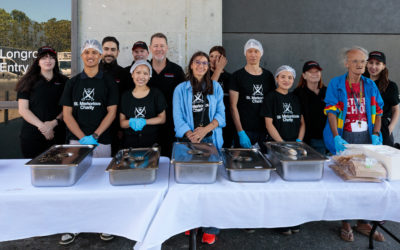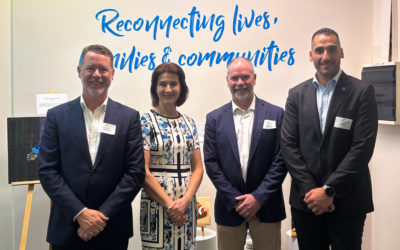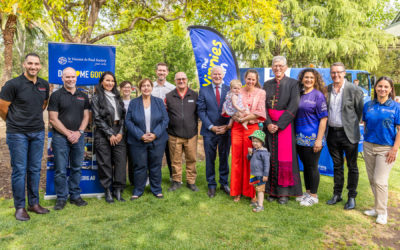A university-developed program, which aims to assist not-for-profit organisations to measure their social impact, has proven to be a valuable tool in the quest to raise much-needed funds from governments and the private sector.
The PAYCE Foundation committed more than $40,000 to the University of Technology Sydney Business School to build the capacity of one of the foundation’s long-standing charity partners, the Sydney Street Choir.
The choir was established in 2001 to help individuals facing complex issues including homelessness, mental illness, addiction and social disadvantage to live a healthy and fulfilling life.
The choir not only gives its members and participants, who often live isolated lives, the chance to perform as a group but also access to important support services.
It currently has a burgeoning profile within the Sydney City community but does not have the resources or capacity to measure its social impact even though it is delivering real benefits to choir members.
Professor Bronwen Dalton, Head of the Department of Management at UTS Business School, said the UTS Social Impact Toolbox was a free resource for the not-for-profit sector that “democratises access to the tools, methods and training that organisations need to evaluate impact”.
PAYCE Foundation Director, James Boyd, said the UTS Social Impact Measurement Toolbox was a perfect fit for the Sydney Street Choir.
“We have enjoyed a long and wonderful relationship with the Sydney Street Choir, but our goal was to assist them in growing as an organisation and attract more funding so they could assist more choir members in a range of areas,’’ Mr Boyd said.
“To achieve this, the choir needed the hard data and the ability to communicate their story.”
“That’s why we jumped at the chance to partner with UTS in the roll-out of its Social Impact Measurement Toolbox.’’
The team from UTS worked with choir staff, volunteers and board members to develop their evaluation plan using the online platform. Sydney Street Choir Welfare Worker, Leonie Oaks, summarised the engagement outcomes:
“This whole process has given us confidence. We are the ones that know what’s happening in the choir, and we’re are the ones that can see the value. We feel we’re the best ones to evaluate the choir.”
Professor Dalton said the toolbox program had proved a success.
“The Sydney Street Choir was a classic case study of a charity doing excellent work but unable to measure it,’’ she said.
“An evidence-based program design, supported by effective and meaningful evaluation can help organisations communicate their impact to funders.”
“This case study will also assist other charities in a similar position to the Sydney Street Choir and encourage organisations to view social impact measurement as achievable.”


